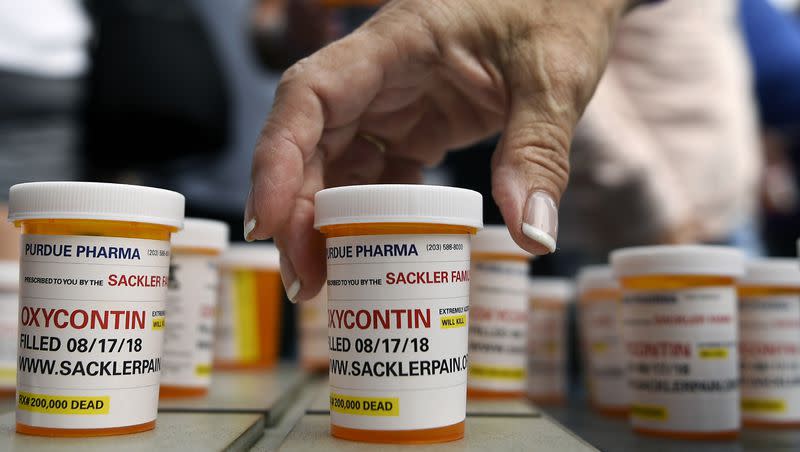Supreme Court pushes pause on Purdue Pharma settlement

The Supreme Court put a bankruptcy deal for Purdue Pharma on hold Thursday, pending a review.
Under the terms of the agreement, which the U.S. Court of Appeals for the Second Circuit had approved, the Sackler family’s personal liability in the opioid epidemic had been capped at $6 billion — money that would be used to settle existing claims — and they would have been granted immunity from civil lawsuits on claims related to the opioid medication OxyContin.
“The order is likely to delay any payments to the thousands of plaintiffs who have sued the Sacklers and Purdue, the maker of the prescription painkiller OxyContin, which is widely blamed for igniting the opioid crisis,” per the New York Times.
The Times said the Justice Department objected, claiming the agreement would let members of the Sackler family, which had run Purdue Pharma, benefit from legal protections “meant for debtors in financial distress, not billionaires.”
The court’s order notes the question at hand is “whether the Bankruptcy Code authorizes a court to approve, as part of a plan of reorganization under Chapter 11 of the Bankruptcy Code, a release that extinguishes claims held by non-debtors against non-debtor third parties, without the claimants’ consent.”
In other words, does a bankruptcy court have jurisdiction to release claims against the Sacklers?
The Supreme Court will hear legal arguments in December.
Related
The New York Times said the case could have “far-reaching implications” since it has become fairly common to settle mass-injury lawsuits through the bankruptcy system.
“They’re taking on a question that’s literally the basis for billions of dollars in mass torts, from cases involving not just opioids, but the Boy Scouts, wildfires and allegations of sexual abuse in the church diocese — where third parties get a benefit from a bankruptcy they themselves aren’t going through,” Adam Zimmerman, University of Southern California law professor, told New York Times.
Per NBC, “Purdue made billions from OxyContin, a widely available painkiller that fueled the opioid epidemic. The company’s tactics in aggressively marketing the drug came under increasing scrutiny as thousands of people died from opioid overdoses in recent years.”
NBC quoted Solicitor General Elizabeth Prelogar, who said the Sackler family “had withdrawn $11 billion from the company amid an effort to shield themselves from liability.”
Experts say the review is bound to delay payment to those slated to receive them.
“The justices, by taking up the case and preventing Purdue from carrying out the settlement during the appeal, ensured that a sizable chunk of tens of billions of dollars pledged by the pharmaceutical industry to combat the opioid crisis will be delayed — or not paid at all. But the move eventually could open the door for parties who balked at the deal to win additional compensation,” according to The Wall Street Journal.

